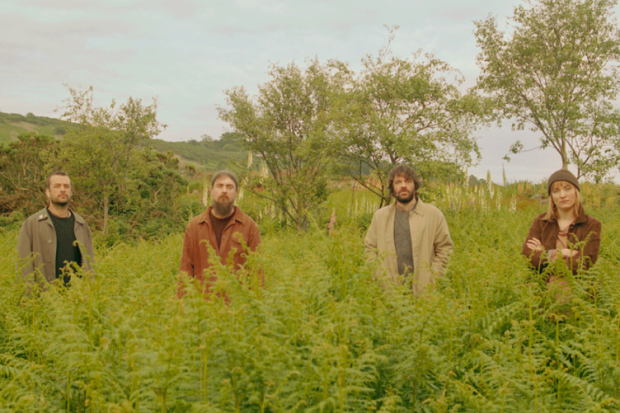
Lisa Knapp
Still Feeding Folk's Roots
Folk music label Topic Records was founded in 1939 as a side project of the Workers’ Music Association, a group established three years earlier to ‘co-ordinate workers’ musical activity’, mainly choirs. But the label subsequently went on to play a significant role in the folk revival of the mid-twentieth century, releasing albums such as Margaret Barry and Michael Gorman’s Street Songs & Fiddle Tunes (1957), Davy Graham’s 3/4 AD (1962), Anne Briggs’ The Hazards of Love (1964) and Willie Clancy’s The Minstrel from Clare (1967), not to mention numerous recordings from Ewan MacColl and Peggy Seeger, The Watersons, Martin Carthy, Shirley Collins and even Pete Seeger’s Guitar Guide for Folk Singers (1958). Later classic recordings include Dick Gaughan’s Handful of Earth (1981), Waterson: Carthy (1994) and Eliza Carthy’s Anglicana (2002).
Now marking eighty years, and under the management of the Proper Music Group, the label has just released Vision & Revision: The First Eighty Years of Topic Records, an album of songs previously released on the label between 1952 and 2006, and now re-imagined by contemporary British, Irish and American folk singers. There is a certain poetry in the fact that some of the artists who recorded the original songs, such as Martin Carthy, Eliza Carthy and Martin Simpson, also appear on the album.
The twenty-track collection opens with Simpson’s ‘Beaulampkin’, a reimagining of a ballad from American folk singer Hedy West, recorded in 1967. Telling the story of a villain who murdered a woman and her child, it’s the most orchestrated track on the album with cello, fiddle and bass backing, suggesting a (probably unintended) progression from the stripped-down folk of the 1960s to the embellished folk of today, but this is in no way characteristic of the album.
Simpson is also referenced later when his recording of ‘Shawnee Town’ from 1985’s Sad or High Kicking is covered by Sam Kelly and The Lost Boys. There are apparent American influences in this track too, but with gentle accompaniment on guitar and banjo, creating a lively polyphony with Kelly’s polished vocals.
‘Go Your Way’ by English songwriter Kitty MacFarlane is taken from an Anne Briggs’ recording from 1971 and is a delicate love song. A repeated chorus of ‘You go your way, my love. You go your way’ trails off with MacFarlane elongating the notes at the end to the sound of a finger-plucked guitar. To MacFarlane, the song is ‘gentle, unfussy and still’, as with Briggs’ recording – ‘she transports you with so few words’.
Only the necessary notes
An outstanding ballad on the album is Sam Lee’s ‘The Deserter’ featuring the singer’s velvet vocals steering the melody through a minor key, with minimal backing on piano, simple chords resonating into nothing before the next chord is struck, with Lee at times singing a capella. English singer and guitarist John Smith’s version of ‘She Moves Through the Fair’ is a similarly tender highlight. Also taking a song from a recording by Briggs, Smith’s interpretation is stripped back with acoustic guitar and voice, in his raspy, low register. As he sings ‘My young love said to me, my mother won’t mind/ And my father won’t slight you, for your lack of kind’, the guitar supports the vocals in the most non-intrusive way, with what sounds like only the necessary notes of each chord, plucked between finger and thumb.
‘As I Roved Out’ by Lisa O’Neill, recorded by Glen Hansard in Pickering Forest House in Kildare, is a high point, partly due to O’Neill’s unique and guttural vocals, which soar between notes in the lower and higher ranges. From the opening line of ‘As I roved out on a bright May morning/ To view the meadows and flowers gay’, her Cavan accent flavours the lyrics.
Lisa Knapp’s ‘I Wish My Love Was a Cherry’ is a delicate ballad with gossamer-thin vocals that comes from a 1965 recording by founding member of Topic, A. L. Lloyd. The closing track of Vision & Revision is Lankum’s retelling of a song from Irish Traveller John Reilly, ‘The Sea Captain’, which closes the album on a deep and dramatic note.
The album also includes gentle love songs such as ‘The Banks of the Sweet Primroses’ by Josienne Clarke and Ben Walker, and the jaunty, march-like ‘Napoleon’s Dream’ by Martin Carthy. Ewan MacColl’s classic ‘Dirty Old Town’ is recorded by The Oldham Tinkers, Chris Wood sings ‘Fable of the Wings, Nancy Kerr has a rendition of ‘Searching for Lambs’ from June Tabor, Eliza Carthy and Olivia Chaney duet on ‘Nancy of Yarmouth’, and Rachael McShane and The Cartographer’s sing Gaughan’s ‘Workers’ Song’. Peggy Seeger, now 84, singing Mike Waterson’s ‘Jack Frost’ – ‘Glorious melody, important subject matter, superb poetry, deeply satisfying to sing. What more could you ask of a song?’ – further connects the album to its illustrious artist history.
Blending decades of music and song between twenty-five artists – also including Richard Thompson, Oysterband, Emily Portman and Rob Habron – Vision & Revision is a rich insight not only into Topic but also the British (and part of the Irish) folk music scene as a whole. Through inviting singers to re-imagine these songs from of the past, Topic is again both documenting the folk process, and contributing to it.
Vision & Revision: The First Eighty Years of Topic Records is available on vinyl and CD from www.topicrecords.co.uk.
Published on 12 July 2019
Shannon McNamee is Assistant Editor of the Journal of Music.

















